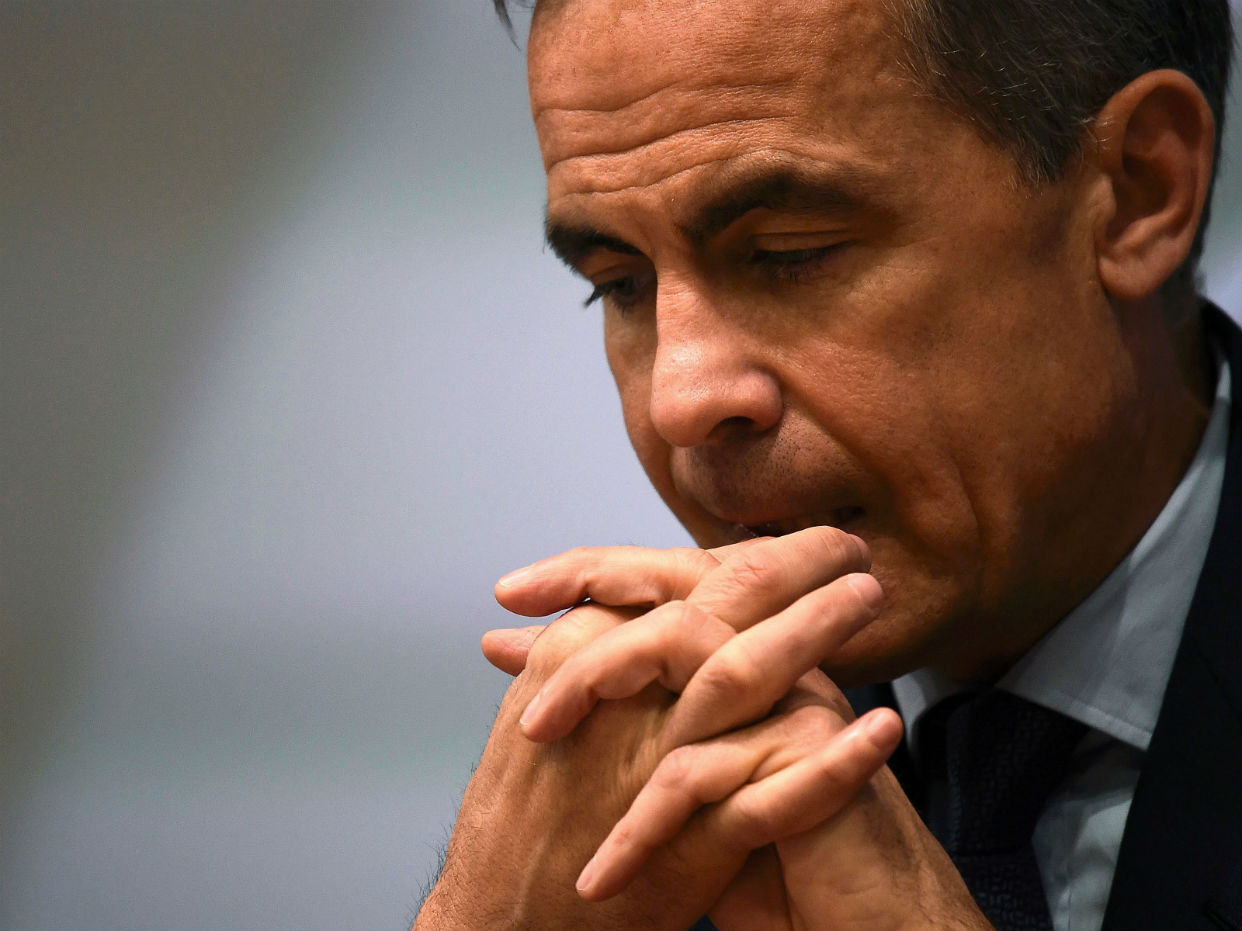Mark Carney appointed UN envoy for climate change
Governor of Bank of England to take up new role at the end of January

A free daily email with the biggest news stories of the day – and the best features from TheWeek.com
You are now subscribed
Your newsletter sign-up was successful
The Governor of the Bank of England, Mark Carney, has been appointed United Nations Special Envoy for Climate Action and Finance.
The BBC says the special envoy post “is a pro bono position that is undertaken essentially for free” and that the UN will pay Carney just $1 a year for the work when he steps down as governor of the Bank of England at the end of January.
Carney will be tasked with mobilising private finance to take climate action and help transition to a net-zero carbon economy for the 26th Conference of the Parties (COP) meeting in Glasgow in November 2020.
The Week
Escape your echo chamber. Get the facts behind the news, plus analysis from multiple perspectives.

Sign up for The Week's Free Newsletters
From our morning news briefing to a weekly Good News Newsletter, get the best of The Week delivered directly to your inbox.
From our morning news briefing to a weekly Good News Newsletter, get the best of The Week delivered directly to your inbox.
This will include building new frameworks for financial reporting and risk management, as well as making climate change a key priority in private sector financial decision making.
Billionaire former New York Mayor Michael Bloomberg, who recently entered the race to become the Democratic US presidential candidate, was the last person to hold the post. Bloomberg worked with the UN on climate change-related issues from 2014 to 2019.
Speaking at a news conference ahead of a climate summit in Madrid this week, UN Secretary General Antonio Guterress described Carney as “a remarkable pioneer in pushing the financial sector to work on climate”.
Reuters reports that Carney “has urged the financial sector to transform its management of climate risk, and led various international initiatives to improve supervision and disclosure”. In October, he told The Guardian that companies and industries that are not moving toward zero-carbon emissions will be punished by investors and face bankruptcy.
A free daily email with the biggest news stories of the day – and the best features from TheWeek.com
–––––––––––––––––––––––––––––––For a round-up of the most important business stories and tips for the week’s best shares - try The Week magazine. Start your trial subscription today –––––––––––––––––––––––––––––––
His successor at the Bank of England has not yet been named after the selection process was disrupted by Brexit and the upcoming general election.
Bloomberg says that there is “boosted speculation [Carney] may be asked to extend his term at the Bank of England for a third time”, although Chancellor Sajid Javid said last month that his party would appoint a new chief “very, very, quickly” if it wins the election.
“The Canadian has given little indication of what he wants to do after leaving Threadneedle Street” says City A.M., adding that “the UN climate job suggests he will seek an active role in global affairs”.
-
 The ‘ravenous’ demand for Cornish minerals
The ‘ravenous’ demand for Cornish mineralsUnder the Radar Growing need for critical minerals to power tech has intensified ‘appetite’ for lithium, which could be a ‘huge boon’ for local economy
-
 Why are election experts taking Trump’s midterm threats seriously?
Why are election experts taking Trump’s midterm threats seriously?IN THE SPOTLIGHT As the president muses about polling place deployments and a centralized electoral system aimed at one-party control, lawmakers are taking this administration at its word
-
 ‘Restaurateurs have become millionaires’
‘Restaurateurs have become millionaires’Instant Opinion Opinion, comment and editorials of the day
-
 Earth is rapidly approaching a ‘hothouse’ trajectory of warming
Earth is rapidly approaching a ‘hothouse’ trajectory of warmingThe explainer It may become impossible to fix
-
 The plan to wall off the ‘Doomsday’ glacier
The plan to wall off the ‘Doomsday’ glacierUnder the Radar Massive barrier could ‘slow the rate of ice loss’ from Thwaites Glacier, whose total collapse would have devastating consequences
-
 Can the UK take any more rain?
Can the UK take any more rain?Today’s Big Question An Atlantic jet stream is ‘stuck’ over British skies, leading to ‘biblical’ downpours and more than 40 consecutive days of rain in some areas
-
 As temperatures rise, US incomes fall
As temperatures rise, US incomes fallUnder the radar Elevated temperatures are capable of affecting the entire economy
-
 The world is entering an ‘era of water bankruptcy’
The world is entering an ‘era of water bankruptcy’The explainer Water might soon be more valuable than gold
-
 Climate change could lead to a reptile ‘sexpocalypse’
Climate change could lead to a reptile ‘sexpocalypse’Under the radar The gender gap has hit the animal kingdom
-
 The former largest iceberg is turning blue. It’s a bad sign.
The former largest iceberg is turning blue. It’s a bad sign.Under the radar It is quickly melting away
-
 How drones detected a deadly threat to Arctic whales
How drones detected a deadly threat to Arctic whalesUnder the radar Monitoring the sea in the air